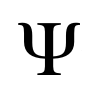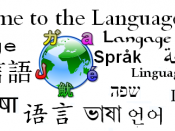What is Language and Lexicon? Language can be fundamental defined by most of the general public today, but lexicon may not easily be explained. In oneÃÂs general opinion, language is a form of communicating ideas, emotions, and opinions. It varies according to the culture and generation of the individuals using it. This paper provides a definition of language and lexicon, the features of language, the levels of language, and the role of language in cognitive psychology.
Physicality aside, Atchison (1983) defines human language as having four unique factors; semancity - in that the words or other units must have a meaning; displacement where language can be used whether the object in question is present or not; structure dependence - given that the order of the words (syntax) must make grammatical sense and creativity - probably the most human quality of all, as there are in essence, a never-ending number of different expressions that can be communicated.
Lexicon is an alphabetical inventory of words from a language, like a dictionary. For theories of human memory, the term is utilized as being a store house of words that an individual knows. The restriction that the inventory be alphabetical is dropped when referring to the mental lexicon recognize and allocate words to certain meanings, then identify the grammatical placement of the word in a sentence, and finally refer back to a wider textual context, using previous knowledge to construct meaning. There are several ways in which humans recognize individual words. Mayer and Schvaneveldt (1971) describe "priming" as recognition of a word by preceding it with another to which it is related, semantically or not. McClelland and Rumelhart (1981) devised the "connectionist model" in that processing a word takes three stages; first, recognizing the shape of the letters; second, considering their placement in the...


